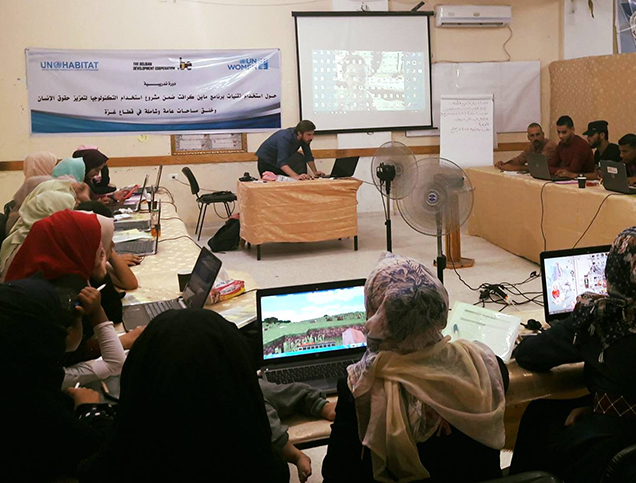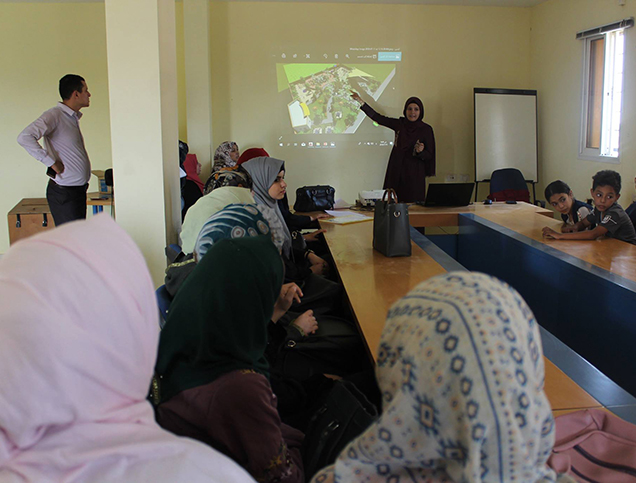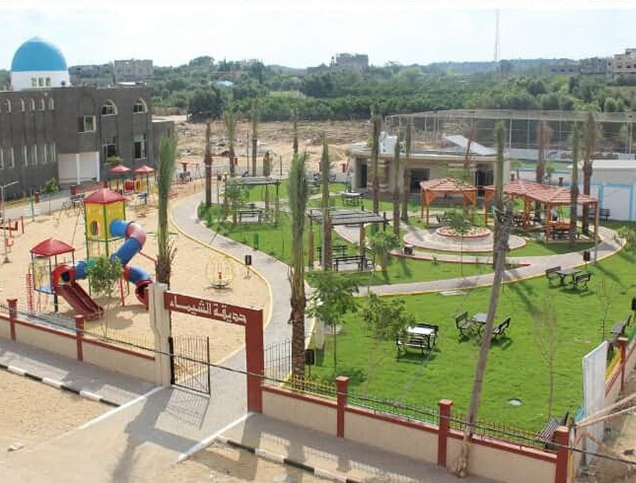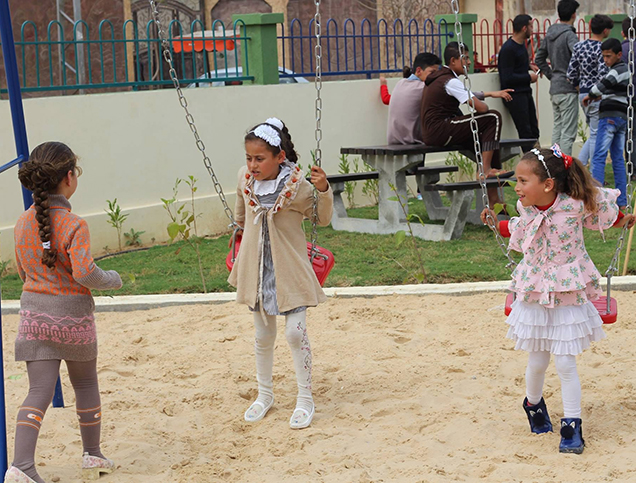
Close

Approach Words: Inclusive City, Participatory Approach, Urban Livability
Public Policy Instruments: Communicative, Organization, Physical Intervention, Planning
Utilizing Digital Tools to Promote Human Rights and Create Inclusive Public Spaces in the Gaza Strip is a two-year program led by UN Women and UN-Habitat. The initiative aimed to co-design and implement three inclusive public gardens1 in Gaza City in Palestine, serving over 100,000 citizens across the areas of Al-Shoka, Beit Lahia, and Al-Zawayada.2 3 By adopting a participatory approach, the program engages communities in designing public spaces using digital tools such as Minecraft and SaftiPin. The program’s primary objectives are to build urban environments that support all residents, particularly women and children,4 by creating safe and inclusive public spaces.5 It also seeks to provide relief to people suffering from the effects of the blockade that has severely impacted the living conditions and economic situations in the Gaza Strip.6

Title: Community workshop for designing Al Shoka Community Garden using Minecraft.
Source: Click Here

Title: Photo showing the local community who participated in the design of Al-Zawaida Park to approve the final design proposal.
Source: Click Here

Title: Al Shaimaa Community Garden in Beit Lahia after implementation.
Source: Click Here

Title: Kids area in Al Shoka Community Garden.
Source: Click Here
To achieve these objectives, the project was implemented in four main phases:
(1) Selection of the sites for intervention in the three neighborhoods of Al-Shoka, Beit Lahia, and Al-Zawayada. These neighborhoods are characterized by marginalization, lack of public services, and open green spaces.7
(2) Organization of capacity-building sessions for local female architects and community representatives focused on developing gender-inclusive, safe, and accessible public spaces free from violence against women, utilizing digital technologies.8 The female architects were later engaged in the participatory design process of the public spaces.9
Additionally, local councils and professionals were trained in using digital technologies to develop interactive municipal websites to better inform citizens about planning, land availability, and development opportunities.10
(3) Organization of community workshops11 to gather input from residents and generate design proposals.12 These workshops represented the first opportunity for residents to actively participate in developing the community gardens with the help of digital platforms.13 These workshops focused on inclusive design approaches for public spaces.14
The co-design workshops were held in three locations across the Gaza Strip as follows:



Contractor/Implementer
(4) Implementation and inauguration of the community public gardens.
Al Shoka Community Garden was inaugurated in April 2018,26 followed by Al Shaimaa Community Garden in Beit Lahia in August 2018,27 and Al-Zawayada Community Garden in December 2018.28
The program was initiated by UN-Habitat and UN Women,29 and implemented in cooperation with the Palestinian Housing Council, AISHA Association for Women and Child Protection, and Gateway for Outsourcing Information Technology.30 The Government of the Kingdom of Belgium funded the project.31
Project Link
https://www.facebook.com/UtilizingDigital/
Endnotes
References